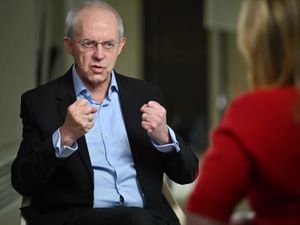Justin Welby says he forgives abuser Smyth and tells of ‘personal failure’
The former archbishop of Canterbury has given his first interview since his resignation.

Former archbishop of Canterbury Justin Welby said he forgives serial abuser John Smyth as he repeated an apology to victims and told of the “deep sense of personal failure” he feels about the handling of allegations.
The former most senior bishop in the Church of England, who resigned in November and stepped down officially in January, said he had “not really thought it through enough, to be honest” when he initially declined to quit last year.
The Makin report into Smyth – thought to be the most prolific abuser associated with the Church – concluded Mr Welby did not adequately follow up on reports about the Christian camp leader and barrister.
It said Smyth might have been brought to justice had Mr Welby formally reported allegations to police in 2013.
Mr Welby initially said he would not resign over the report and remained in post for a further five days before announcing he would quit.
In his first interview since his resignation, he told the BBC’s Sunday With Laura Kuenssberg programme: “What changed my mind was having been caught by the report being leaked and not really thought it through enough, to be honest.
“Over that weekend, as I read it and reread it and as I reflected on the horrible suffering of the survivors which had been, as many of them said, more than doubled by the institutional Church’s failure to respond adequately, it increasingly became clear to me that I needed to resign.”
Elsewhere in the interview, he indicated he forgives Smyth, who is said to have subjected as many as 130 boys and young men to traumatic abuse across five decades in three different countries in the UK and Africa.





